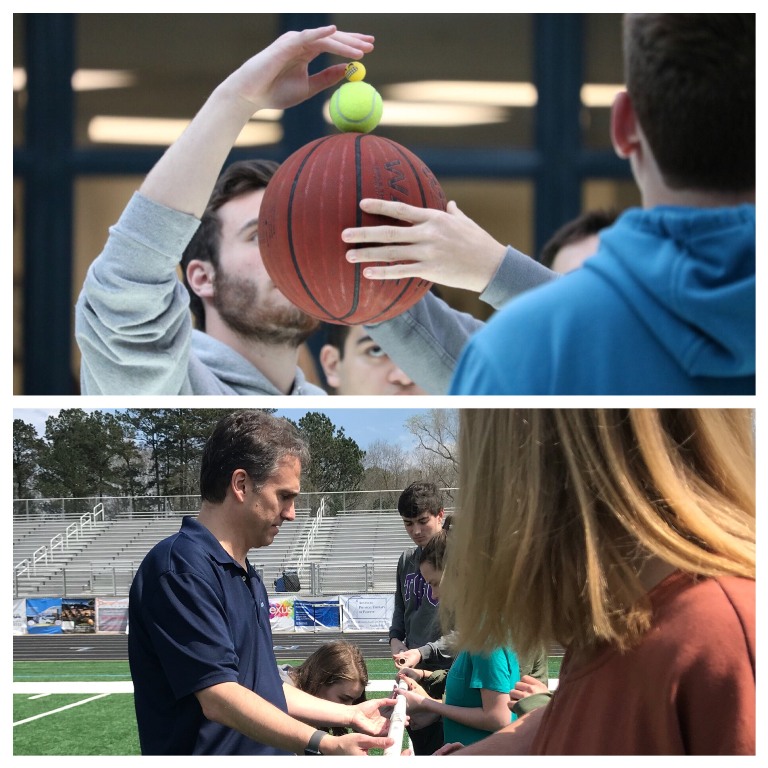Science department
April 9, 2018
Purpose
- Teach students about science and how it is used in everyday life
- Inspire students to use science past the classroom setting
Details
- 12 teachers
- Seven Advanced Placement classes
- Department chair: Dan Gant
The Starr’s Mill High School science department teaches and inspires students daily by teaching different scientific aspects of the world and how it functions. The department has a variety of classes that feature topics in life, physical, computer, and Earth sciences. These classes come with an array of difficulty including college preparation, gifted, and Advanced Placement.
Students at the Mill must complete four years of science to graduate. Required classes include some form of biology, a choice of chemistry, environmental science, or earth systems, another choice of physical science or physics, and a miscellaneous year, where a student can take any science class they have not already taken. This extra class can be an AP or a science course that focuses on a particular area of study, such as anatomy.
Two additional classes can also be used as science credits, even though they are not within the department. These classes are the second year of healthcare and the second and third year of food sciences.
The science department uses all kinds of methods to teach students. Whether it’s lectures or experiments the classes help students daily understand all things science. “We try to give the basic concepts through electric presentation, but then reinforce it with labs,” Gant said.
Along with being influential in the classroom, the department also has found ways to allow students to explore the field of science outside the school day. The science department sponsors two science themed clubs for students who need more science than one class period offers. Robin Huggins oversees the Eco Club, and Ann Whitley and Michelle Barron both run the Science Olympiad.
Additionally, the department offers students the opportunity to participate in Science Fair. This competition gives students the opportunity to show their experimental side as they get to create and conduct an experiment for a chance to win prizes at the school, county, and even state levels. “[Science fair] is required for gifted and optional to everyone else,” Gant said. “We actually [had] a student (senior Dana Gould) compete and is still competing, and she is not in the gifted curriculum.”





